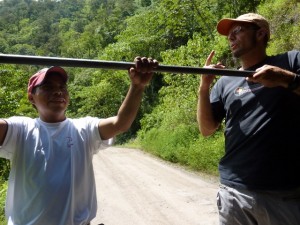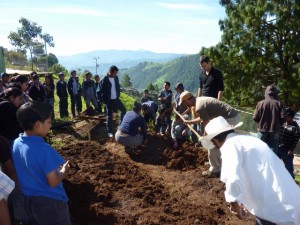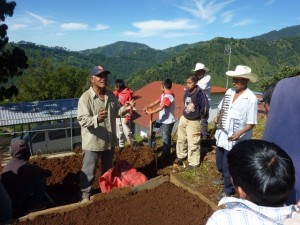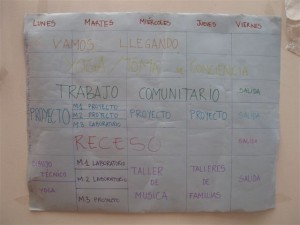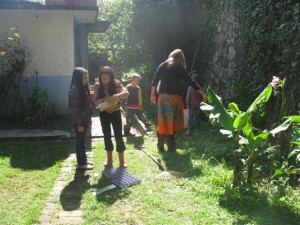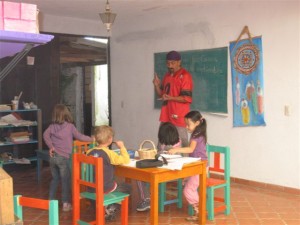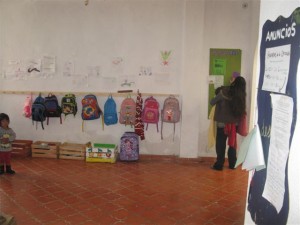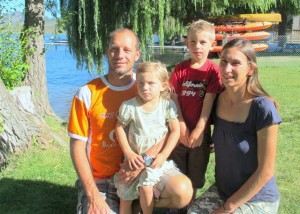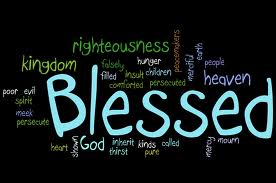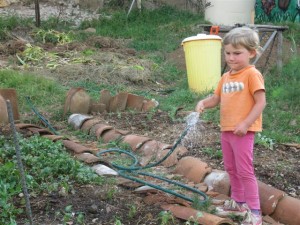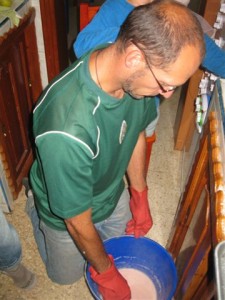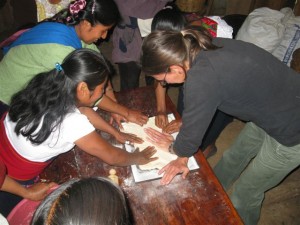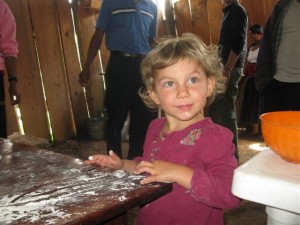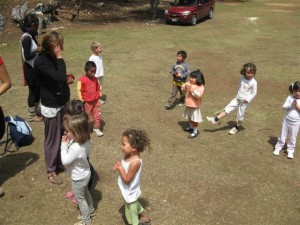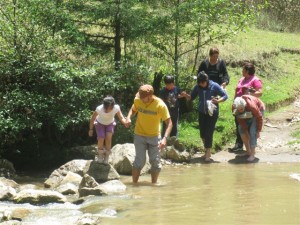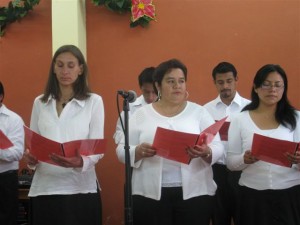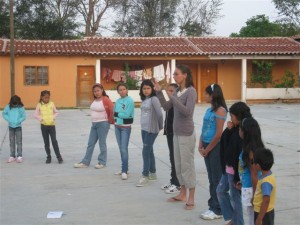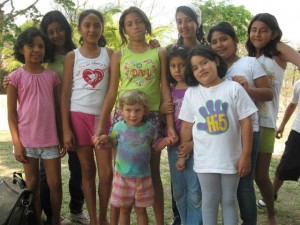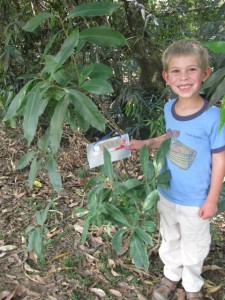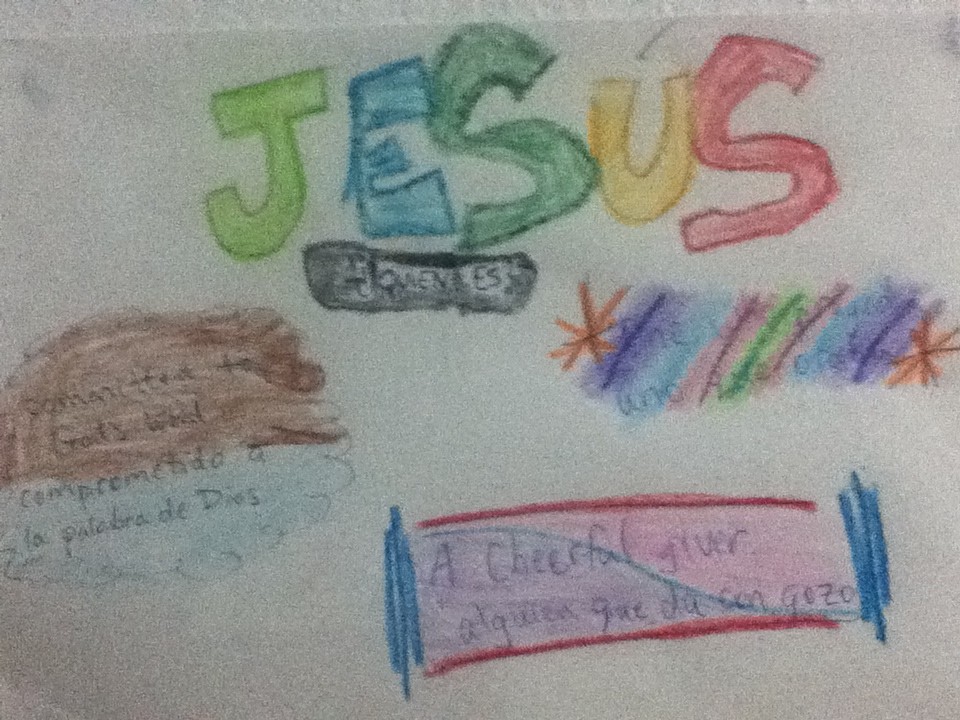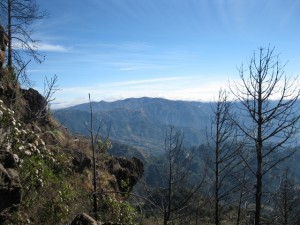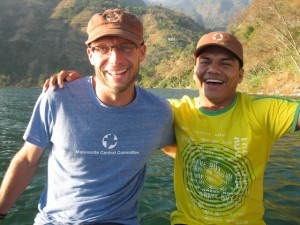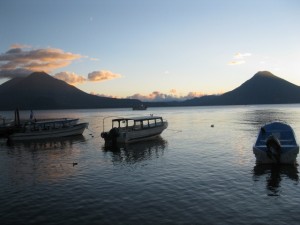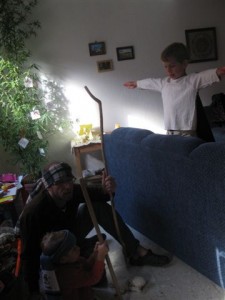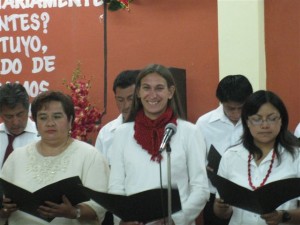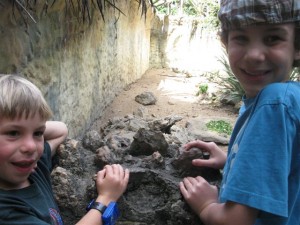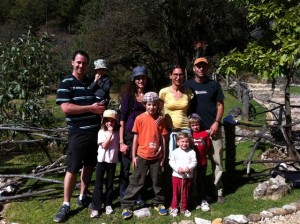Originally I had envisioned writing a blog post that played off the term “climate-change”, allowing the reader a brief moment to believe I would expound on the global woes manifest here in Mexico, yet in reality my intention would be to describe the contrast in climate and culture that exists amongst the varied “tierras” in Chiapas, as in “tierra fria; tierra templada; tierra caliente” (cold lands; temperate lands; hot lands). Although I wasn’t sure that would be so interesting for the the thousands of followers of this blog (hope you can catch the sarcasm too!). As well, recently I spent a few days in a community way up in tierra fria, and the experience proved to be quite memorable for a variety of reasons, thus a change in blog-writing plans.
El Zapotillo is a community of perhaps 150 homes, scattered along two mountainsides, approximately 1 km in width and about 500 meters elevation between the highest and lowest homes. It sits at 2700 meters (~ 9000 ft) elevation, and is certainly a community in tierra fria – December through March it often dips to freezing…. pretty hard to have a bucket shower early in the morning!! It is a land of potatoes, wheat (not as common anymore), apples, peaches, and maize (6 months between seeding and harvest). The air is pure, and on a clear day it is quite stunning how close Volcan Tacana really is (see a January 2012 post for a climb of Tacana I did with my friend Rogelio). In this area of Chiapas, the climate changes dramatically over just a couple hours of driving. A mere 60 km to the southwest from Zapotillo and you burst out of the Sierra Madre and into the hot humid Pacific coastal plain, where there is no sign of what grows in Zapotillo, but rather plantations of mango, mandarin, cacao, coffee, and rambutan (kinda like lychee), as well as an increasing presence of african palm (used as a biodiesel).
This particular trip to Zapotillo (maybe the 8th time I’ve gone) was special in several ways: 1) it was the “passing of the torch” from one Swiss volunteer to the next who had just arrived (INESIN also works with a Swiss partner to place volunteers to help teach science and environment classes in a few communities where we also work with the food security project), 2) it was the first time to Zapotillo for my co-worker (Chiapanecan) who began her work with INESIN in May, 3) it would be the first time (of hopefully more to come) that the community group and the secondary school jointly worked/learned together 4) while not completely uncommon, we stayed a full extra day in Zapotillo, thus with little agenda and more opportunity to visit and explore.
For me, definitely the highlight was helping to bring together members from the community group and the students for a time of building garden beds, planting vegetables and a demonstration on how to make good compost. As is common in most places, the youth were a bit shy at the beginning to get involved, but little by little they became more interested and committed to do the necessary work, even building 2 more garden beds on their own later that same day! For me personally, I especially appreciated the approach of the community group members, who carefully and humbly passed on some of their knowledge they have accumulated over many years of caring for the land. As I recall some of my work back in Canada (and it applies here too), most if not all folks that hold to the value of interacting with the creation in a way that reflects our mandate given in the book of Genesis, also carry a strong desire to pass this value on to the next generation. The idea of connecting these two sources of community life (school, and community group), now germinated, will hopefully continue to grow and one day produce much fruit in the sense of stronger social ties amongst generations, and a collective appreciation for their land alongside a commitment to maintaining its health and integrity.
Similar to most of my blog posts, this one has been strung together over a week of occassional writing. As a further note to the paragraph above, tonight I attended a forum put on by an organization called Otros Mundos, where our friend and MCC colleague, Miriam Harder, is seconded part time. In a nutshell, the forum is being held to raise public awareness and provide a vocal avenue for local communities of the reality of REDD+ (Reducing Emissions from Deforestation and Forest Degradation), a United Nations International Programme designed to help in the “development” of “lesser-developed nations”, while allowing the continued growth (and emissions) of large industrial economies via mitigation of plantation-forest development in the lesser-developed nations. Perhaps on paper, in theory, this type of programme could be mutually beneficial – but the stark reality we hear and see in Chiapas is the contrary…more and more families are driven off their land (for reasons such as expropriation of land, deception, land degradation, etc) without another means of survival, and typcially without the attention of government officials. Maybe I`ll delve into this topic further at a later date, but for now I will just say that, due to our globalized context and often un-noticed interconnectedness, I am left wondering what role do we have (or need to have), we who live in privilege and much comfort, and/or we who profess a faith that compels us to live and walk humbly, to love, and to act with justice and mercy. What does this look like, at an individual and family level, and also if applied at a grand scale? May our informed responses be a more welcome type of climate change.





